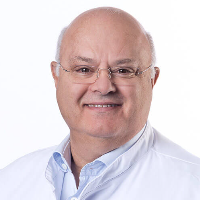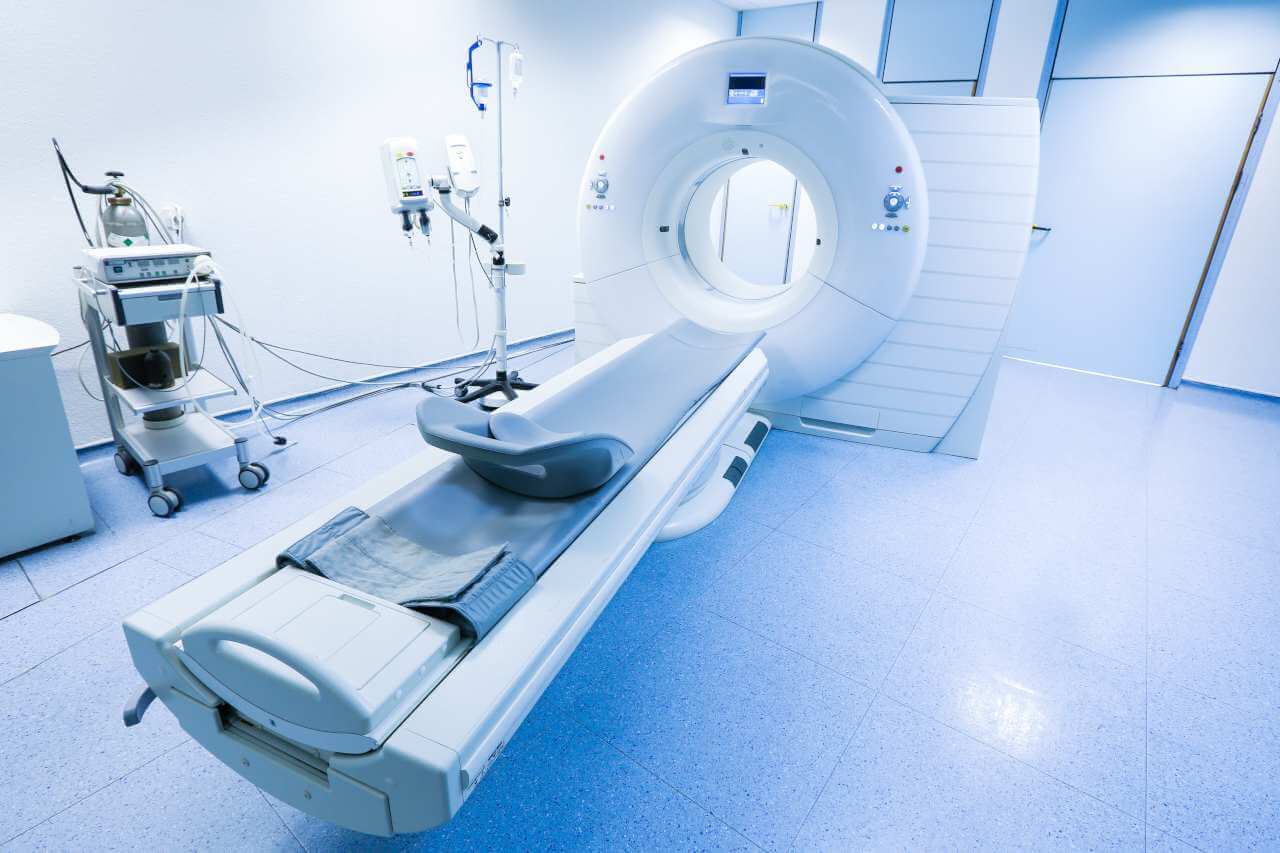
The program includes:
- Initial presentation in the clinic
- clinical history taking
- review of medical records
- physical examination
- laboratory tests:
- complete blood count
- biochemical analysis of blood
- Lipid metabolism (HDL/LDL, cholesterol,
triglycerides Lip(a), homocysteine) - inflammation indicators (CRP, ESR)
- metabolic status (uric acid, total glucose, HbA1c)
- cardiovascular disease risk markers
- kidney function test (creatinine, urea)
- coagulogram
- D-dimers
- antiphospholipid antibodies (APA)
- antithrombin III
- doppler and duplex venous
- phlebography
- color doppler echocardiography
- preoperative care
- percutaneous thrombectomy
- symptomatic treatment
- control examinations
- the cost of essential medicines and materials
- nursing services
- full hospital accommodation
- developing of further guidance
Required documents
- Medical records
- Ultrasound scan of the lower extremities vessels (if available)
Service
You may also book:
 BookingHealth Price from:
BookingHealth Price from:
About the department
The Department of Vascular Surgery at the Meoclinic Hospital Berlin offers the full range of medical services for the prevention, diagnostics and surgical treatment of venous diseases. Particular attention is paid to the treatment of varicose veins, which is one of the most common vein pathologies. The department also provides medical care to the patients suffering from venous insufficiency, venous thrombosis and other diseases of this spectrum. The specialists of the medical facility have modern equipment for detailed imaging of the venous system. The diagnostic protocol is based on ultrasound scanning and angiography. The department's specialists use in their work an ultramodern ultrasound device with a triplex mode, which allows the doctors to simultaneously combine several modes – color Doppler ultrasound, spectral Doppler and B-mode images. Therapeutic options include innovative minimally invasive procedures that have proven themselves in modern medicine. The department is headed by Dr. med. Pavlos Alevizakos.
The department's team of vascular surgeons often performs minimally invasive interventions for varicose veins to correct aesthetic defects. As a rule, the specialists use foam sclerotherapy and thermal ablation for spider veins. Foam sclerotherapy is the most sparing procedure. The essence of the therapeutic manipulation is the injection of a special substance (sclerosant) into the affected vein. Unlike classical sclerotherapy, the drug is mixed with a small portion of air, resulting in the formation of foam. Such an approach allows the doctors to perform sclerotherapy of small and large veins. The procedure is performed under ultrasound guidance, without the use of anesthesia. The department's doctors perform foam sclerotherapy on an outpatient basis. The advantages of the therapeutic procedure include high efficiency, minimal pain, no side effects and no scars. In addition, varicose veins often recur, and foam sclerotherapy can be successfully repeated. In some cases, the department's doctors recommend patients a combination treatment using foam sclerotherapy and surgical vein removal or laser and radiofrequency ablation.
In the clinical practice of the department, the method of endovenous thermal ablation (Venefit procedure) is also often used. In most cases, this minimally invasive procedure is recommended for patients with lesions of the great and/or small saphenous veins. Access is provided by several skin punctures with a special needle. All the therapeutic manipulations are performed under ultrasound guidance. During endovenous thermal ablation, the specialist injects a local anesthetic and adrenaline into the vein: this allows achieving vessel compression, which makes the procedure almost painless. The doctor uses a special catheter at the end of which is a heating coil that releases radio frequency energy at 20-second intervals. The therapeutic effect is achieved by blocking the blood flow in the affected vein, while the vein is not removed, but remains in the patient's body. Over time, it transforms into connective tissue. The Venefit procedure on one leg takes about 20 minutes. As a rule, the therapeutic manipulation does not leave any scars. The patient can return to his usual way of life within a few days after endovenous thermal ablation.
The department's vascular surgeons also have the necessary qualifications and experience to perform more radical interventions for varicose vein treatment. These include the CHIVA method and Babcock's stripping. These operations are quite traumatic and require general anesthesia. Therefore, they are the last-line therapy when the department's physicians are convinced that other treatment methods will not allow them to achieve a good therapeutic result.
The department's range of medical services includes:
- Diagnostic options
- Ultrasound examinations (triplex mode)
- Angiography
- Computed tomography (if clinically indicated)
- Magnetic resonance imaging (if clinically indicated)
- Surgical options
- Interventional procedures for the elimination of aesthetic defects in patients with varicose veins
- Foam sclerotherapy
- Thermal ablation for spider veins
- Minimally invasive interventions
- Endovenous thermal ablation for the great veins (Venefit procedure)
- Microsurgical phlebectomy (vein removal)
- Classic surgical interventions
- CHIVA method
- Babcock's stripping
- Interventional procedures for the elimination of aesthetic defects in patients with varicose veins
- Other medical services
Curriculum vitae
Professional Career
- 1986 Admission to medical practice after studying Medicine at the Free University of Berlin.
- 1989 Thesis defense in Vascular Surgery at the Free University of Berlin. Subject: "Infrainguinal aneurysms. Etiology, symptoms, diagnostics and results of operations".
- 1995 Board certification in Surgery, Free University of Berlin.
- 1999 Board certification in Vascular Surgery.
- 2000 - 2003 Senior Physician in the Departments of Vascular Surgery in various hospitals in Berlin and Brandenburg.
- 2003 - 2004 Physician in the Department of Vascular Surgery at the Charite University Hospital Berlin.
- 2004 - 2009 Senior Physician, Section of Endovascular Surgery, Department of General and Abdominal Surgery, Franciscus Hospital Berlin (Academic Hospital of the Charite University Hospital Berlin).
- Since 2008 Head Physician of the Department of Vascular Surgery at the Meoclinic Hospital Berlin.
Photo of the doctor: (c) Meoclinic
About hospital
The Meoclinic Hospital Berlin is one of Germany's most renowned multidisciplinary private hospitals offering top-class and patient-centered medical care. The hospital opened its doors to patients back in 2000 and today is deservedly proud of its vast experience. It has 28 specialized departments, each of which is responsible for the treatment of a particular group of diseases. A highly professional medical team consisting of 67 doctors takes care of the health of patients. The basis of the work of the doctors of the hospital is the use of the most advanced and, if possible, sparing treatment methods. The hospital is certified according to ISO 9001:2015 standards, so patients benefit from the highest level of the quality of service, adherence to hygiene and safety standards.
The hospital includes almost all fields of modern medicine: internal medicine, general and abdominal surgery, endocrine surgery, vascular surgery, hernia repair surgery, hand surgery, plastic surgery, pediatric surgery, cardiology, pulmonology, gastroenterology, rheumatology, proctology, gynecology, urology, ophthalmology, orthopedics, neurology, neurosurgery. To provide surgical treatment, the hospital has three high-tech surgical suites, which perform both minimally invasive interventions and DaVinci robot-assisted interventions, as well as the most complex operations lasting several hours. In addition, the hospital has an advanced Radiology Center with innovative devices for computed tomography, magnetic resonance imaging, ultrasound diagnostics and X-ray scanning. These resources allow providing accurate diagnostics and effective treatment of the highest European level.
Despite the fact that the hospital has advanced technologies and modern infrastructure, the focus of the medical staff is on the patient – his needs, wishes and well-being. During the treatment in this medical center, patients are surrounded by care, comfort, and they are treated with maximum respect and understanding. The doctors of the hospital use all their professionalism and medical knowledge for the benefit of patients, saving lives even in particularly complex cases.
Photo: (с) depositphotos
Accommodation in hospital
Patients rooms
The patients of the Meoclinic Hospital Berlin live in well furnished rooms, corresponding to the level of luxury five-star hotels. There is a fantastic view from the windows of the patient rooms on the Gendarmenmarkt, the Reichstag, the Friedrichstrasse or the courtyard of the hospital. The hospital has a pleasant atmosphere, which is also facilitated by soothing colors. The standard patient rooms include a comfortable bed, a bedside table, a desk and chairs, a wardrobe with a built-in safe for storing valuables, air conditioning, a minibar, a TV and a telephone. Free Wi-Fi is available in the patient rooms. Each patient room has an ensuite bathroom with shower and toilet, heated floor. There are bath slippers, towels and toiletries in the bathroom. A bathrobe, shower caps, shaving kit and hairdryer are available upon request.
Meals and Menus
The patients of the hospital are offered tasty and healthy three meals a day: breakfast, lunch and dinner. The menu mainly includes vegetable, fruit, poultry and fish dishes. Each patient has a choice of several menus, including traditional Russian and Arabic cuisine, as well as kosher and vegetarian meals.
If for some reason you do not eat all foods, you will be offered an individual menu. Please inform the medical staff about your dietary preferences prior to treatment.
Further details
Standard rooms include:
Accompanying person
Your accompanying person may stay with you in your patient room or at the hotel of your choice during the inpatient program.
Hotel
You may stay at the hotel of your choice during the outpatient program. Our managers will support you for selecting the best option.




